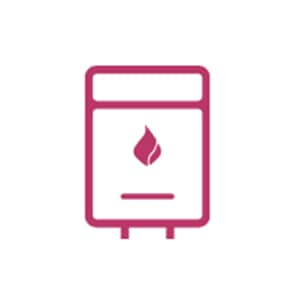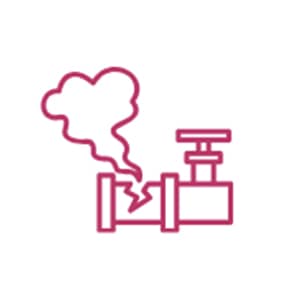 Things You can Do
Things You can Do
We always advise you to carry out checks where possible, especially if the lights go out or your appliances stop working, the fuse board is the first place to check for a tripped switch. If your heating or hot water is working becomes sporadic, the pressure gauge should be checked to determine is limit. We are always on hand to assist you should our help.
 Report Your Issue
Report Your Issue
When things go wrong and a tradesperson is needed it's important that you let our Property Management team know, you can do this by calling or visiting the office so arrangements can be made. If you encounter an emergency such as an electrical fault, gas or water issue, you must act and inform us or your Landlord immediately.
 Boiler Issue
Boiler Issue
If you have an issue with your boiler where you have no hot water, or the heating isn't coming on, you can perform basic checks yourself allowing you to get back on track with ease. Firstly, check the pressure gauge. The pressure gauge will be located on the bottom face of the boiler or below the boiler around the pipework, it looks like a small clock with numbers and pin pointing to a number. Most boilers will work well with the pressure gauge being set at between 1 and 2 bar. The video above will guide you through the basic checks.
 If You Can Smell Gas
If You Can Smell Gas
Can you smell gas or do you think there's a gas leak? The first thing to do is to make sure that you stay safe, so please: do not smoke, don't light matches or cigarette lighters, don't use light switches or put anything electrical on or off, put out any naked flames such as candles, open all doors and windows, turn off your gas supply at the meter (and leave it switched off until you're sure it’s safe to turn it back on again). You must then call the National Gas Emergency team on 0800 111 999. Let your landlord know along with the letting agent so they can also make arrangements for a Gas Safe engineer to attend.
 Electric Maintenance
Electric Maintenance
If you face an issue where you have no lighting in the property or the sockets don’t appear to be working, the first thing you should do is check the fuse board. Most modern fuse boards will have a series of switches that control fuses that power individual circuits to the property. Your first course of action if you experience an issue is to look at the fuse board to check if one of the switches have tripped. All switches on the fuse board should be pointed up in an on position. If you find one is down and a label below the switch indicates what that fuse is for, you should push the switch to the up position, which will then rectify the fault. It is important to bear in mind that bulbs that blow or faulty appliances or faulty plugs are a common cause for trip switches to fault. If your socket circuit is tripping after you flicked the switch back up, remove all plugs from sockets and once this is done return back to the fuse board and push the switch back up. Once the switch stays in place, put each plug back in one at a time and if the fuse trips again you will know which plug is causing the fuse to trip.
 Carbon Monoxide
Carbon Monoxide
Carbon monoxide is a colourless, odourless, tasteless, poisonous gas produced by carbon-based fuels such as gas, oil, wood and coal. It is only when the fuel does not burn properly that excess CO is produced, which is poisonous. You can't see it, taste it or smell it but CO can kill quickly without warning. According to the HSE statistics every year around 7 people die from CO poisoning caused by gas appliances and flues that have not been properly installed, maintained or that are poorly ventilated. Levels that do not kill can cause serious harm to health if breathed in over a long period. In extreme cases paralysis and brain damage can be caused as a result of prolonged exposure to CO.
 Water Leaks
Water Leaks
Water leaks can occur in many forms, a small drip or a gush from a burst pipe. If you see signs of a leak, locate where the Water Stop Tap is and turn the main water supply off, this will help prevent the leak from worsening. Report the issue as soon as it’s found. Some leaks can occur through negligence rather than a natural fault therefore sensible management is always advisable.
If something goes wrong at the property or you need a helping hand with advice, we will be there to assist you when needed. Sometimes it may be a simple fix and the below guide will help you better understand the processes to follow before you contact us.







